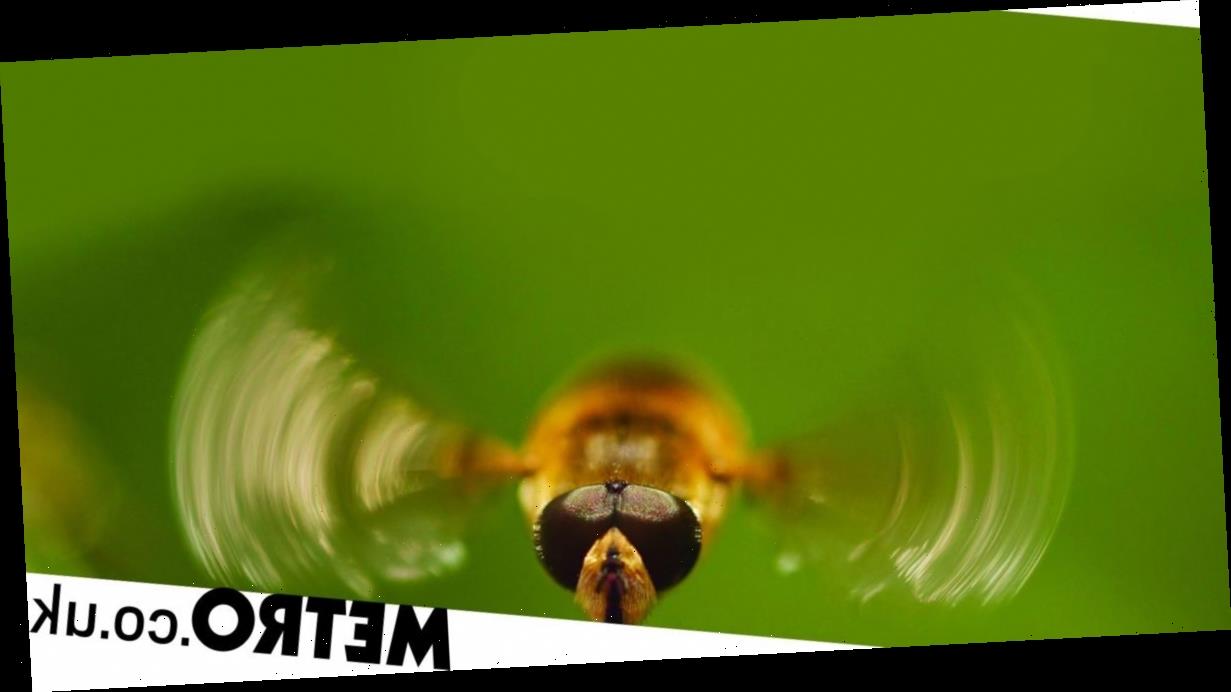Ambitious targets to reduce pesticides need to be set to reverse declines in bees, butterflies and other insects, wildlife experts have urged.
The call from the Wildlife Trusts comes as it publishes a report highlighting efforts to help insects across the country, with projects managing farmland, road verges, chalk streams, city parks and churchyards.
Growing evidence shows many insects are in rapid decline, such as UK butterfly populations which are down more than 50% since 1976, the report said.
The decline has impacts for farming, which relies on beneficial insects for pollination, keeping down pests and soil health, and for a host of plants and animals from birds to bats and hedgehogs.
Insects have been hit by a loss of habitat, with 97% of the UK’s wildflower rich meadows vanishing since the 1930s, ploughed up for crops or converted to less natural pasture, while 87% of wetlands have gone.
The report also said 16,900 tonnes of pesticides were applied to the countryside every year, while there was also spraying in towns, cities and gardens and chemicals poured down the drain.
But it highlights action that is being taken to protect some of the UK’s 27,000 species of insects, from bees and grasshoppers to beetles, dragonflies, moths and butterflies.
To help insects, the Wildlife Trusts are calling for an ambitious pesticide reduction target that is as good as, if not better than, the EU’s proposal to halve the overall use of pesticides by 2030.
The conservation groups warn there should be no weakening of existing UK pesticide standards in future trade deals, and there must be support for farmers to adopt insect-friendly farming practices.
It will be possible to reverse insect declines if a network of nature-rich areas are created to cover at least 30% of the UK and legally binding targets are set for the recovery of nature, the trusts say.
It is also calling for local councils to create more nature-rich places for insects, and make their areas pesticide-free, and for householders to take action to support bugs.
The Wildlife Trusts’ report calls for nature to be connected across the landscape, through managing road verges, railway lines, river banks and streams and boosting wildlife-friendly farming and gardening.
It highlights farmers who are farming in ways that boost nature, from creating wildflower strips to ending use of insecticides, slug pellets and even cattle worming medication to help dung beetles.
In cities and towns, creating habitat such as meadows or wild areas with dead wood for stag beetles and abandoning herbicides in favour of hand weeding and strimmers to control weeds on streets can boost insects.
Projects highlighted by the report include creating meadows in a churchyard in Somerset and a cemetery in Shrewsbury, Shropshire, ‘insect highways’ alongside roads in Kent and restoring ditches in Avon.
Craig Bennett, chief executive of The Wildlife Trusts said: ‘In my lifetime 41% of wildlife species in UK have suffered strong or moderate decreases in their numbers and insects have suffered most.
‘This has had a huge effect on the rest of the natural world. The vital role that insects perform is undermined and everything that depends on them suffers, from hedgehogs to nightingales, wildflowers to wetlands.’
He called for the Agriculture Bill, going through Parliament, to set high environmental standards in law and make sure insect friendly farming practices are rewarded.
Lead author of the report, Professor Dave Goulson from the University of Sussex, said: ‘If we get it right for insects we get it right for everything else.
‘Insects are the canaries in the coal mine – their collapse is an alarm bell that we must not ignore.
‘Action is needed from every section of society – we all need to change this together.’
Source: Read Full Article

